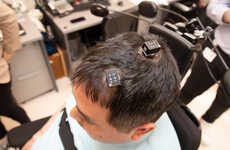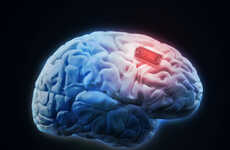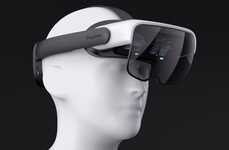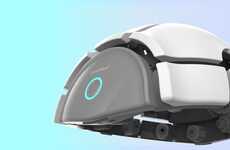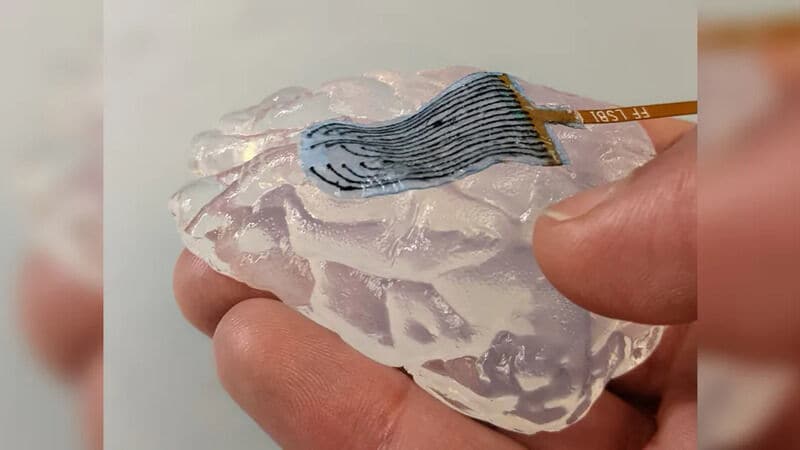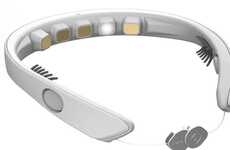
Researchers at MIT and Harvard Develop a Hydrogel Scaffold
References: fastcompany
The brain-computer interface has been a future-forward concept and some researchers have dedicated their time to exploring it. The brain-computer interface, referred to also as the brain-machine interface or the smartbrain, seeks to establish a functional direct communication pathway between the brain's electrical activity and an external device. While numerous companies have such technology in development, there was recently a potential breakthrough in the field thanks to researchers from the Wyss Institute at Harvard University, Harvard’s John A. Paulson School of Engineering and Applied Sciences, and MIT. The innovation is a hydrogel scaffold that is electrically conductive. The researchers believe that the soft material may enable a functional brain-computer interface but that it can also tell us more about how the brain works.
Image Credit: Wyss Institute at Harvard University
Image Credit: Wyss Institute at Harvard University
Trend Themes
1. Soft Brain-computer Interface - Developing hydrogel scaffolds as electrically conductive material for a potential breakthrough and better understanding of how the brain works
2. Direct Communication Pathway - Establishing a functional direct communication pathway between the brain's electrical activity and an external device through the brain-computer interface technology
3. Brain-machine Interface Development - Numerous companies are developing brain-computer interface technology in the bid to create innovative products that offer endless possibilities.
Industry Implications
1. Biotechnology - A hydrogel scaffold as a potential breakthrough for a soft brain-machine interface creates opportunities for the biotechnology industry to improve healthcare through this technology.
2. Neuroscience - The development and wider acceptance of brain-computer interface technology can revolutionize Neuroscience industry to better understand the brain functions.
3. Consumer Electronics - The development of a brain-computer interface holds great possibilities for the consumer electronics industry as it can enable devices to function based on what the user thinks and envisages.
5.9
Score
Popularity
Activity
Freshness

